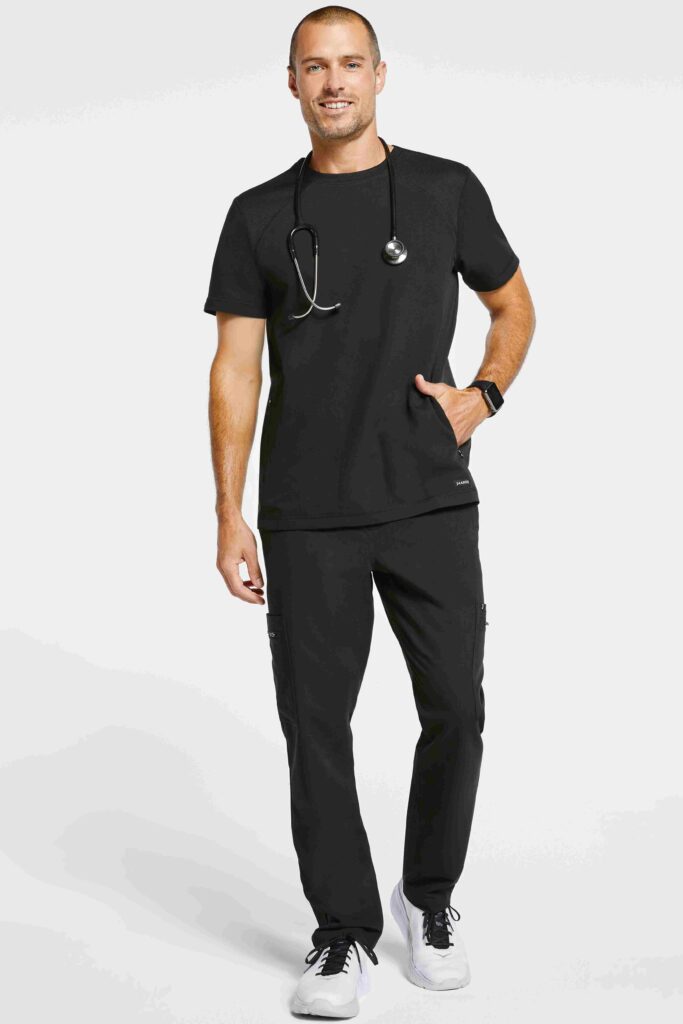
What Makes a Good Doctor?
It’s no newsflash, but we’ll say it anyway: Becoming a doctor is not for the faint-hearted. You’ll be faced with complex medical emergencies, and you’ll also be called upon to be compassionate, empathetic and understanding. But we know you have it in you!
Being a good physician requires honing various hard and soft skills. Hard skills are based on scientific and medical knowledge, like how to use a pair of medical scissors or other tools, while soft skills help you communicate with your patients, make them feel heard and safe and show them you care.
If you’re an aspiring medical student and wondering what’ll set you apart from others, you’re in the right place. We’ll explain what makes a good doctor, so you know what to expect going in. We know you’ll not only be a good doctor but a great one. For us, medical professionals are inspirational, and we’re always learning from you.
What are the innate characteristics of a great doctor?
If you’re considering pursuing the medical profession, you’ve probably already identified certain innate personality strengths that will support you in your work. Perhaps people have even told you that you exhibit the “healthcare professional” signs; you should be a doctor. But passing the MCAT and making it through med school aren’t enough. Here are a few baseline traits all great doctors possess or be able to improve as they take on a career in this field.
- Empathy: In your time as a doctor, you’ll inevitably have to deliver difficult diagnoses. In these moments, your patients will need to feel seen and comforted. If you’re in a role that allows you to see repeat patients, try to establish a bond over time so that your patients trust you, even when the going gets tough.
- Humility: If you’re a doctor, you’re intelligent and have studied long and hard to be where you are. But, acting pompous can damage a relationship with a patient. No one wants to feel like they are being talked down to.
- Respect: The patient-physician relationship is built on the foundation of mutual respect. You may encounter some scenarios where your patients are a bit unaccommodating, but this doesn’t mean you should ever disrespect them. Be calm in such situations, and make them understand the circumstances.
The top 21 qualities of a good doctor
With some practice and learning, anyone can become an expert at these hard and soft skills, no matter what their innate strengths are. Here are 21 skills that will make you a standout doc.

Hard skills
- Diagnosing patients
- Making treatment plans
- Performing direct patient care
- Prescribing medication
- Educating patients and their family members
- Monitoring patient progress
- Promoting better overall health
- Staying updated on the latest research in your field
- Shifting treatment to meet changing situations
- Performing various medical procedures and surgeries
Soft skills
- Leadership that transcends micromanagement
- Teamwork
- Ability to work long hours
- Problem-solving skills
- Active listening
- Effective communication skills
- Time management
- Analytical abilities
- Ability to stay calm under pressure
- Decision-making skills
- Work ethic
Qualities to avoid
We all have a bad day once in a while, but medical professionals must keep their feelings in check to continue providing excellent patient care. Here are some qualities you should try to avoid in your doctor-patient relationships:
- Not being patient with patients: Patients deserve engaged, empathetic care. If you’re burnt out and it’s taking a toll on your mood, take a step back, indulge in some self-care, talk to a mental health professional about your stress and consider how you can improve your patient interactions. Don’t let your grump impact your communication with your patients.
- Not respecting other doctors’ opinions: No matter what your specialty is, at some point, you’ll have to seek advice from your peers and work as a team. Show your colleagues the respect they deserve by listening intently and learning from them. A know-it-all attitude will only prevent you from absorbing important information that can potentially save a life.
- Not trusting yourself: Whether you’re overtreating patients because you fear you’re missing something or questioning your judgment on a case, you can appear incompetent—and you’re certainly not that. Trust your skills and medical education. You put in the time during med school and your residency, and if you need a second opinion, lean on your peers. Showing that you know your stuff but still have the humility and curiosity to ask for help is one of the top signs of a good doctor.
- Not learning: Great doctors keep up on the latest research in their fields so they can provide the best patient care possible. However, we’re all capable of forgetting even what we already know, so keep your skills and knowledge fresh and take advantage of the research and technological advancements that can make you a better doctor.

More than just a diagnosis
Becoming a doctor takes dedication. It means enduring a grueling educational journey that includes four years of pre-med, another four of medical school and an additional 3-7 years of residency. What we’re getting at is that most doctors really want to become the best doctors. So, if you are becoming a clinician or already are one, you’re likely making an effort to provide excellent patient care in the best bedside manner possible.
But if you still think that you’re not cut out for this profession, it’s totally fine. There are plenty of other rewarding careers in healthcare or roles in other medical practices where you can help people.
We’ll leave you with some words to describe a good doctor so that you can see how well you fit the profile. Remember, this list is by no means complete; it’s just a start. So, think about what you see in yourself in this list, and let us know what you might add!
- Optimistic
- Honest
- Committed
- Humane
- Compassionate
- Empathetic
- Good listener
- Good communicator
- Respectful
- Knowledgeable
- Unbiased
- Fair
- Level-headed
- Personable
You’ll be great at what you do, no matter what you decide. And, if you do decide on a role in the medical field, we’ll ensure that you head into work every day in perfectly fitting, premium scrubs.